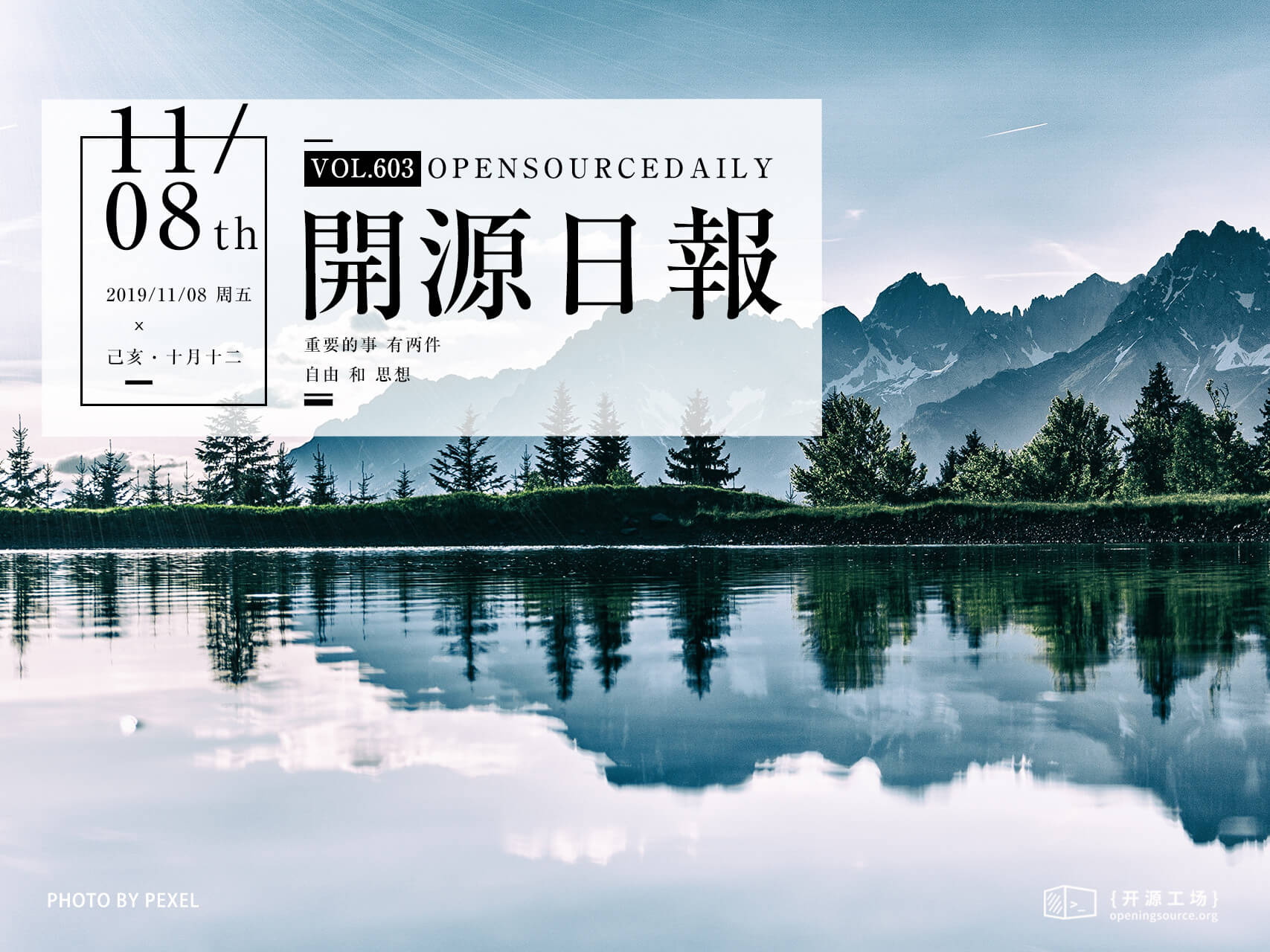今日推荐开源项目:《日语 Awesome-Japanese》
今日推荐英文原文:《AI Will Reinstate Direct Democracy》

今日推荐开源项目:《日语 Awesome-Japanese》传送门:GitHub链接
推荐理由:实在闲得无聊的时候,学点什么总是没错的,比如某种新的编程语言——或者是真正的语言。这个项目是关于学习日语的资料合集,学习真正的语言虽然与编程语言相似,不同的语言间同样有着相通的部分,但是难度可不是一个层面上的,两天时间学习编程语言可能写起来已经开始有点像样了,但是学习日语也就背熟个五十音,仅仅只是开始的一步而已,尽管学会之后好处很多,但是也要付出相应的时间和觉悟来才行。
今日推荐英文原文:《AI Will Reinstate Direct Democracy》作者:Sukhayl Niyazov
原文链接:https://medium.com/swlh/a-i-will-reinstate-direct-democracy-26cb9cd751de
推荐理由:把 AI 用在政治上
AI Will Reinstate Direct Democracy
The case for optimism in the age of artificial intelligence
The majority of the debates regarding the advent of artificial intelligence (AI) seems to be focused only on negative sides. AI-powered monopolies, the tyranny of the minority, jobless future, collapse of the democratic system and capitalism, global inequality, digital dictatorships — to name a few.Media and people tend to focus their attention on negative things only, however. AI, though it will clearly bring about many challenges, will also result in tremendous new opportunities.
One of the biggest promises of AI is that it will signal the advent of a truly “direct” democracy.It will help us define what it means to be a human. It will create a society of abundance and will allow humans to stop doing tedious and dehumanizing work. It will turn emotionally charged politics into evidence-based discourse with data-driven suggestions on how to tackle our problems.
Instead of sowing feelings of doom and gloom, we should pay more attention to how we can maximize the advantaged offered by AI and minimize its negative implications.
Optimism is the faith that leads to achievement. Nothing can be done without hope and confidence. Helen KellerOne of the biggest promises of AI is that it will signal the advent of a truly “direct” democracy.
With the dawn of the AI era, we might witness the revival of the original form of democracy practised in ancient Athens — the (almost) direct rule by the people.Since the inception of the first democracies, democratic governance has functioned in the following way.
Politicians present their views to the electorate and citizens elect a politician who will best advance their interests.
However, managing the country through elected representatives is not always the best approach, because very often elected officials backtrack from their promises and deviate from the expectations of their constituents. The resulting gap between ordinary people and policymakers is often hard to bridge, leading to mutual misunderstandings and mistrust that undermine the democratic system.
It is known that in today’s political environment, politicians are forced to sell multiple versions of themselves to different voter groups. They often tell different stories to various religious, ethnic, economic and political groups in order to increase their popularity. That is, by the way, the reason why candidates’ general speeches are boring and lack concretization: they fear that certain people will stop supporting them if they make controversial statements.
However, with the dawn of the AI era, we might witness the revival of the original form of democracy practiced in ancient Athens — the (almost) direct rule by the people.
In our day and age, politicians, instead of announcing their views and waiting until the electorate makes a choice, study voters’ perspectives and adjust themselves accordingly to fit the voters’ expectations.
Candidates use machine learning and artificial intelligence to analyze data about voters’ opinions. Data drawn from citizens’ activity in social networks (and beyond) about their preferences and desires could be used to identify the true wishes of citizens.
As politicians utilize AI techniques to analyze voters’ views, a new kind of social contract emerges, where, based on Big Data research, elected officials’ perspectives are the representation of the electorate’s views.
When a candidate finds out that his or her platform is not a popular one among voters, he or she can change it in a manner that is geared towards people’s demands and needs.
That is how democracy could be ultimately reinforced by the use of AI: analyzing voters’ databases would give a politician a precise image of what citizens need, thereby bridging the gap between representatives and citizens and enhancing the democratic process by de-facto reinstating the Athenian democracy, albeit in a bit different form.
After all, politicians, in the quest for more votes, will try their best to satisfy the requirements of the electorate to win their favor.
In the words of Pedro Domingos, a renowned AI expert, thanks to AI,
democracy works better because the bandwidth of communication between voters and politicians increases enormously.The advent of the AI era will mark a turning point in the history of human evolution. It will provide us with unprecedented opportunities and pose substantial challenges.
But let us remain optimistic — and focus on the bright side of the issue. After all, as Noam Chomsky has said,
Optimism is a strategy for making a better future. Because unless you believe that the future can be better, you are unlikely to step up and take responsibility for making it so.
下载开源日报APP:https://openingsource.org/2579/
加入我们:https://openingsource.org/about/join/
关注我们:https://openingsource.org/about/love/
